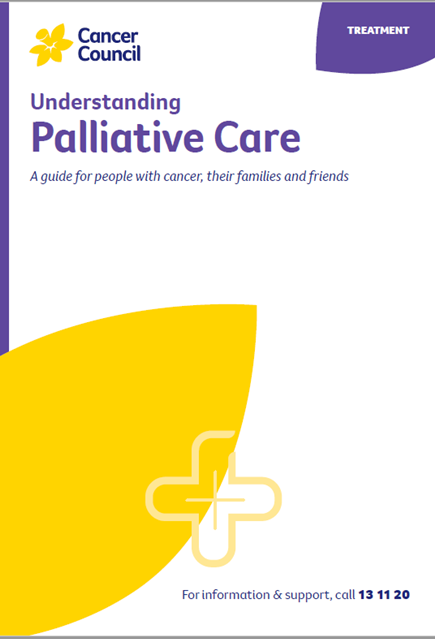Palliative treatment
In some cases of advanced myeloma, the medical team may talk to you about palliative treatment. Palliative treatment helps to improve quality of life by alleviating cancer symptoms. It can be used at any stage of advanced cancer. As well as slowing the spread of cancer, palliative treatment can relieve pain and help manage other symptoms.
Treatment may include blood transfusions, radiation therapy, chemotherapy or other drug therapies. Palliative treatment is one aspect of palliative care, in which a team of health professionals aims to meet your physical, emotional, cultural, social and spiritual needs.
Read more about the emotional and physical aspects of advanced cancer.
→ READ MORE: Managing symptoms of myeloma
Find out how palliative treatment aims to manage symptoms and improve people’s quality of life without trying to cure the disease.
Podcast for people affected by advanced cancer
Listen now
More resources
Dr Ian Bilmon, Haematologist, Westmead Hospital and The Sydney Adventist Hospital; Martin Boling, Consumer; Catherine Bowley, Myeloma Support Nurse, Myeloma Australia; Dr Samuel Dickson, Radiation Oncologist, Calvary Mater Newcastle; Rachelle Frith, Clinical Nurse Consultant, Haematology, Prince of Wales Hospital; Dr Wojt Janowski, Haematologist, Calvary Mater Newcastle; Yvonne King, 13 11 20 Consultant, Cancer Council NSW.
View the Cancer Council NSW editorial policy.
View all publications or call 13 11 20 for free printed copies.
Need to talk?
Support services
Coping with cancer?
Speak to a health professional or to someone who has been there, or find a support group or forum
Need legal and financial assistance?
Pro bono services, financial and legal assistance, and no interest loans
Cancer information
The emotional impact of advanced cancer
First reactions and ongoing effects of an advanced cancer diagnosis
Making treatment decisions for advanced cancer
Weighing up the benefits and side effects of treatment

